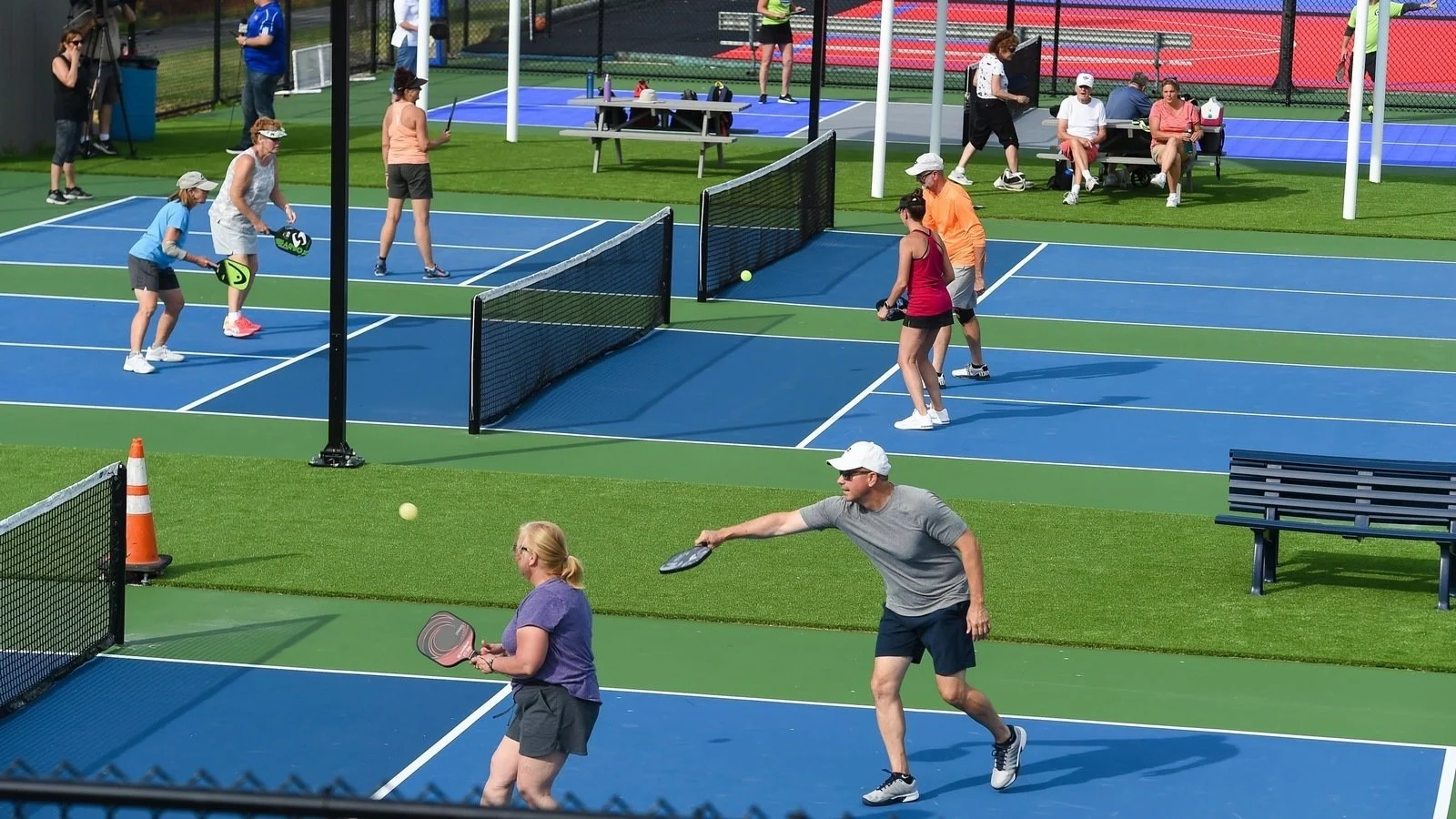In a spirited debate echoing through Chilmark, the pickleball court controversy takes center stage. At a recent planning board meeting, a proposed bylaw to ban new courts sparked diverse opinions. Supporters of the ban cite noise pollution concerns in residential areas, a problem echoed nationwide. In contrast, opponents highlight pickleball’s health and social benefits, especially for older residents.

The planning board, led by Richard Osnoss, is treading cautiously. They’re considering the sport’s impact on community harmony and real estate values. Yet, the board is open to alternatives, like public courts in less intrusive locations.
John Diamond, opposing the ban, draws an unusual parallel to the film “Footloose,” suggesting pickleball, like dancing in the movie, brings joy and exercise despite its noise. He proposes regulated, community-accessible courts as a middle ground.
The issue isn’t just local. Nationwide, pickleball has sparked lawsuits and community divisions over noise. The board’s challenge is to balance these concerns with the sport’s popularity. They’re exploring solutions like “Green zone” quiet paddles, noise-mitigating fences, and potentially soundproofed public courts.
Jeff Kaye, a West Tisbury resident, shares his struggle with a nearby court’s noise, calling it “intolerable” and “invasive.” His testimony underscores the urgency of finding a harmonious solution.
Public opinion leans towards creating a dedicated public space for pickleball. Joan Malkin suggests using town-owned land, akin to community tennis courts. This idea resonates with many, including Kaitlyn Kurth, a local tennis player and mother. She advocates for inclusive outdoor sports spaces, emphasizing the need for a community-centered approach.
The debate isn’t about the sport’s merits but its integration into the community fabric. Scott Darling, seeing pickleball’s impact on real estate firsthand, suggests soundproof courts as a potential fix. This indicates a broader trend: as sports evolve, so must our community spaces and regulations.
The board faces a complex task. They must weigh the sport’s benefits against its unintended consequences. Their decision will set a precedent not just for Chilmark but potentially for other communities grappling with similar challenges.
As the discussion continues, the board will gather more public input. Their decision could redefine how small towns nationwide accommodate emerging sports like pickleball. It’s a delicate balance of community needs, sports enthusiasm, and peaceful coexistence.
- Pickleball Craze Hits Alabama as Athens Pickleball Association Attracts Passionate Players
- Pickleball Player Michelle Pfeiffer Gets Black Eye On Court
- Tennis Star Bouchard Joins Pros Flocking to Pickleball
- Paddle Playtime: Pepper Pong Wants To Be The Pickleball Of Table Tennis But Falls Short Of A Serious Sport
- PaddleSmash Makes a Splash on ‘Shark Tank’ Season 15: A Game-Changer in the Outdoor Sports Market
- New Pickleball-Ready Shoes by Keswick Hall and Dr. Scholl’s
- Senate Pickleball Caucus: Bipartisanship on the Court
- Rhode Island’s Largest Pickle Ball Venue Opens in North Kingstown
- More Pickleball Courts for Wrightsville Beach Park
- Madison Township’s EPIC Move to Bring Pickleball Courts to Veterans Park! Are You Ready to Smash It?
- Pickleball vs Paddle Tennis: We Settle This Confusing Debate Once and For All
- How Pickleball Won Over Everyone
- Are Monarch Pickleball Paddles Good?
- How Does Pickleball Open Play Work? [Detailed Guide]
- Pickleball Court vs Badminton Court (Detailed Comparison in Courts)
- What Can You Not Do in Pickleball?
- What Pickleball Paddles Do Pros Use?
- Do Any Cruise Ships Have Pickleball?
- Can Pickleball Save America?
- What Is the Ideal Level of Arch Support in Pickleball Shoes With a Wide Toe Box?
- When Is Pickleball Season: A Comprehensive Guide
- What Are Pickleball Paddles Made of? Explained
